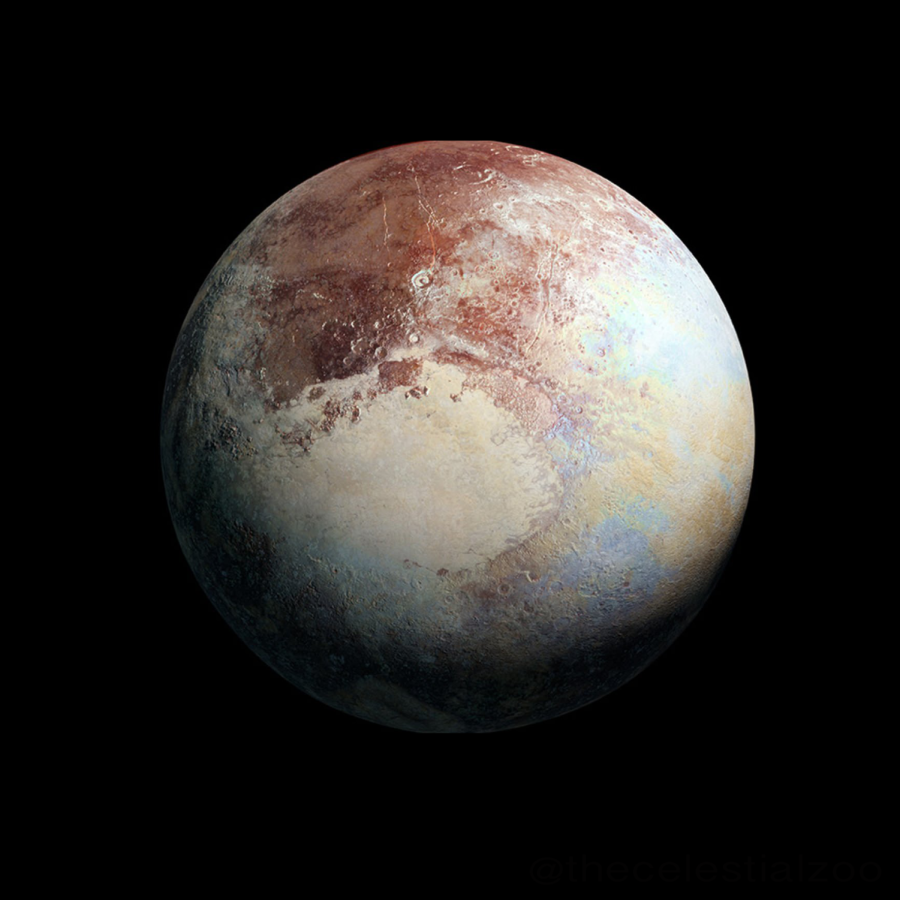Pluto: the Ninth Planet. Or is it?
October 18, 2022
Almost a century ago we discovered Pluto, and it still hasn’t made a full orbit around the sun. Is Pluto really a planet?
Clyde Tombaugh discovered Pluto, the ninth planet in our solar system. He discovered Pluto at the Lawrence Lowell Observatory on Feb. 18, 1930. He discovered Pluto with a new technique, which was to combine photographic plates with a microscope.
In 2006 the definition of a planet was changed making Pluto no longer a planet. This asks the question if Pluto is still a planet. I think not.
The requirements to be a planet are:
It must orbit a star (in our cosmic neighborhood, the Sun).
It must be big enough to have enough gravity to force it into a spherical shape.
It must be big enough that its gravity cleared away any other objects of a similar size near its orbit around the Sun.
Pluto does not fit this definition; it does not have enough gravity to clear away objects near its orbit. Pluto is not a planet because it does not fit the definition of a planet.
The counterargument to this is that Pluto is a planet because it orbits the sun and has planet-like features such as mountains and plains.
Pluto may have mountains and plains, but it still doesn’t fit the definition of a planet. Pluto does fit the requirements of a dwarf planet. The requirements of a dwarf planet are like the requirements of a regular planet. It must orbit a star, and it must be big enough to have enough gravity to force it into a spherical shape. The only difference is a dwarf planet cannot clear its orbit path. So Pluto fits the definition of a dwarf planet, but not a regular planet.
There are many planets in our solar system like Pluto and they are classified as dwarf planets. Planets like Ceres and Eris are in the same position as Pluto. Many planets in the Kuiper Belt are like this. There are also even smaller planets called proto-planets that are smaller than Pluto and orbit the sun. It is estimated that over 3 trillion asteroids and comets orbit the sun in the asteroid belt, and they would be classified as planets if the definition was not changed as well as the many protoplanets in our solar system
If all planets like Pluto were classified as planets instead of eight planets, there would be over 1,000 planets; that is why the definition of a planet was changed so smaller planets and objects that orbit the sun are not classified as planets. Pluto is not a planet because if it were there would be over 1,000 planets in our solar system, that is why the definition had to be changed
In the last decade, Pluto has been under a lot of controversy if it is a planet or not. Do you think that Pluto is a planet or is it not?


Rachel Ledoux • Oct 18, 2022 at 3:48 pm
Pluto is a planet in my heart. ?